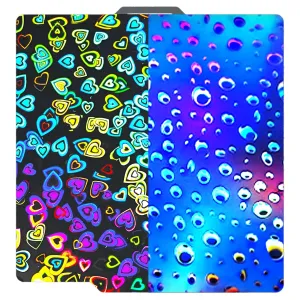Product Description
Together, the films offer a unique glimpse into the evolution of one of cinema's greatest directors. A Story of Floating Weeds reveals Ozu in the midst of developing his mode of expression; Floating weeds reveals his distinct style at it's pinnacle. Direction: Yasujiro Ozu Actors: Choko Iida, Hideo Mitsui, Reiko Tani, Special Features: Audio commentary by Japanese film historian Donald Richie; New score by noted silent-film composer Donald Sosin; Audio commentary by film critic Roger Ebert; Original theatrical trailer. Full frame format. Language: Japanese / Sub. English. Year: 1934 Runtime: 89 minutes.
Amazon.com
Providing a unique opportunity for the appreciation of Yasujiro Ozu's signature style, Criterion's definitive double-feature of A Story of Floating Weeds (1934) and Floating Weeds (1959) demonstrates the evolution of a master. Drawing inspiration from the now-obscure 1928 American carnival-troupe drama The Barker, Ozu first made A Story of Floating Weeds as a silent film (despite the advent of sound by that time), and Criterion's DVD features a sublime, newly recorded original score that sounds and feels like it's been part of the film all along. The film itself concerns a traveling Kabuki troupe faced with dramatic revelations as they perform in a rural village: Their master has had a son from a former lover whom he is visiting for the first time in a dozen years. Unaware of his parentage, the now-grown son thinks the visitor is his rarely seen uncle, and the master's mistress, upon discovering her lover's secret family, plots to undermine their relationship by urging a young actress to seduce the son, knowing that this would enrage the master's discreet familial pride. By story's end, all of these central relationships will undergo deep and resonant change.
Ozu was justifiably proud of this meticulous character study, in which his celebrated low-angle style began to assert itself. A quarter-century later, he remade the film as Floating Weeds, retaining the same story and characters, switching the setting to a seaside town, and demonstrating a more casual acceptance of human foibles that makes the 1959 version (Ozu's first film in color) relatively calm and compassionate when contrasted with the more turbulent tone of the '34 silent. Having grown as an artist, Ozu was at his stylistic peak here, having refined his style to the point where all camera movement had given way to flawless refinement of static compositions. These and other comparisons abound in the study of original and remake; to that end, commentaries by preeminent Japanese film expert and dialogue translator Donald Richie (on the '34 film) and film critic Roger Ebert (on Floating Weeds) provide astutely thorough appreciations of the parallel structures, stylistic evolution, and cultural specifics of films that, until the early 1970's, were considered "too Japanese" for an international audience. Never dry or pretentious, their scholarly analyses lend solid, sensitive context to the enjoyment of two of Ozu's most critically and commercially successful films. --Jeff Shannon
- Aspect Ratio : 1.33:1
- Is Discontinued By Manufacturer : No
- MPAA rating : NR (Not Rated)
- Product Dimensions : 7.5 x 5.25 x 0.75 inches; 4 ounces
- Director : Yasujiro Ozu
- Media Format : Multiple Formats, Closed-captioned, NTSC, Subtitled, Black & White, Special Edition, Color
- Run time : 3 hours and 25 minutes
- Release date : February 24, 2004
- Actors : Ganjiro Nakamura, Machiko Ky, Haruko Sugimura, Takeshi Sakamoto, Chko Iida
- Subtitles: : English
- Language : Japanese (Dolby Digital 2.0 Mono), Unqualified (DTS ES 6.1)
- Studio : Criterion Collection
- Writers : Kgo Noda, Tadao Ikeda, Yasujiro Ozu
- Country of Origin : USA
- Number of discs : 2

![Stories of Floating Weeds (A Story of Floating Weeds / Floating Weeds) (The Criterion Collection) [DVD]](https://www.survaid.shop/image/stories-of-floating-weeds-a-story-of-floating-weeds-floating-weeds-the-criterion-collection-dvd_CTk9xp_1.webp)










